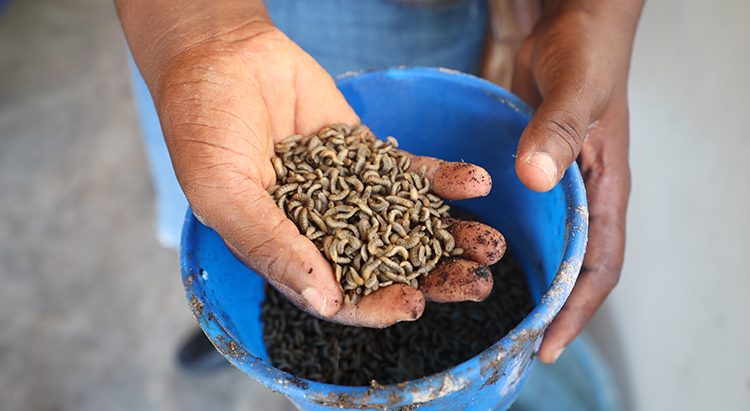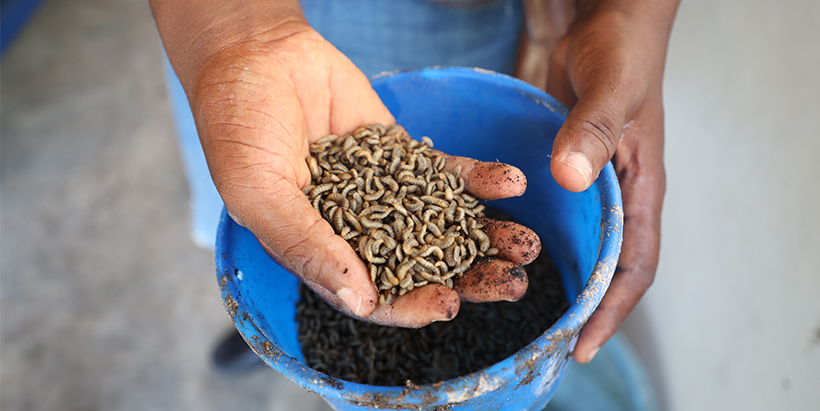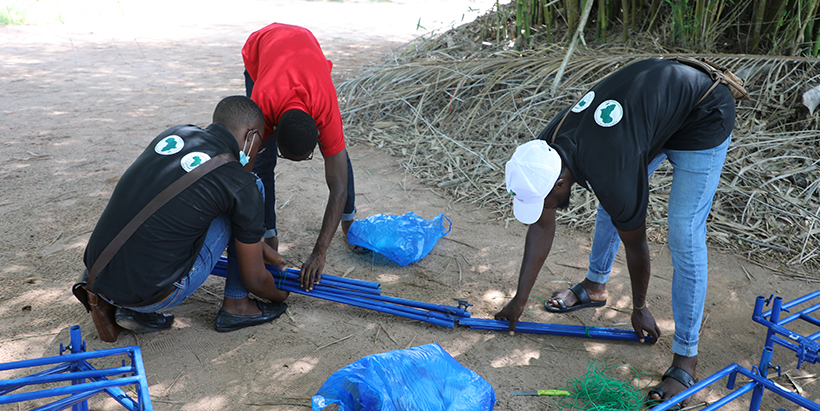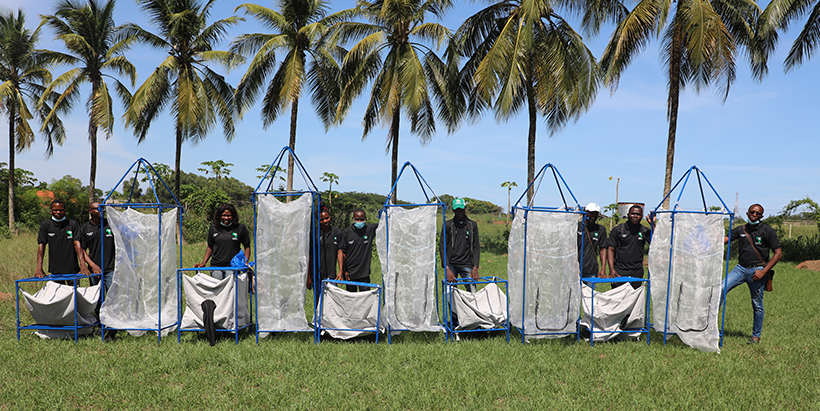
Educating youth to bridge the protein gap in livestock feed
One of the key requirements for healthy livestock is the availability of a protein diet. However, protein for livestock is often in limited supply, as it is in high demand by humans. Hence, many youth-led livestock enterprises often do not rely on a single means to get protein for their animals.
One innovative solution provided by the ENABLE-TAAT program to youth-led enterprises is the production of black soldier fly larvae, known to be rich in protein and essential elements for poultry and fish feeding. From 29 March to 9 April, ENABLE-TAAT trained 15 young agribusiness enterprise owners in the Republic of Benin to produce black soldier fly larvae, specially intended for poultry and fish farming.
The youth attested to a limited supply of adequate protein in livestock feed, which has led to the search for alternatives. The training beneficiaries learned how to raise soldier flies from livestock waste such as droppings and human food waste. The crop substrates of soldier flies can also serve as a soil fertilizer.
The high demand and low supply of protein in livestock feed make it expensive, thus affecting profit margins and general business growth. So far, fish is the primary source of protein for both humans and livestock; it is consumed in various forms by humans and as fishmeal or feed material for livestock.
ENABLE-TAAT is committed to boosting youth-led agribusinesses by introducing helpful new technologies. For example, disseminating the ‘black soldier fly larvae’ feed technology brings relief to young livestock farmers. They will now be able to feed their livestock with the waste products of this same livestock, thus reducing production costs and increasing profit.
This circular bioeconomy technology increases sustainability in livestock production while easing the competition for protein between humans and livestock and provides better-quality protein to livestock.



